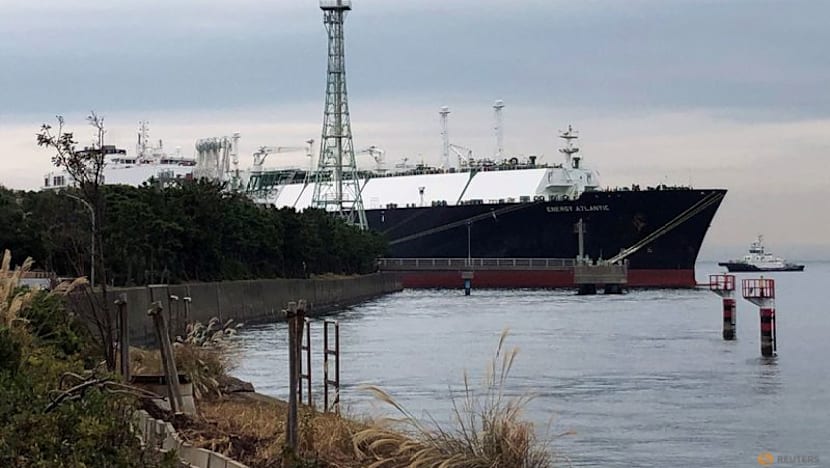Business
Japan Boosts Monthly LNG Purchases for Emergency Reserves

Japan, the world’s second-largest importer of liquefied natural gas (LNG), will increase its monthly LNG purchases beginning in January 2024. This decision aims to bolster emergency reserves and safeguard against potential supply disruptions, according to two sources from the Ministry of Economy, Trade and Industry (METI).
The revised approach to the Strategic Buffer LNG (SBL) program will ensure that Japan secures at least one cargo of LNG, approximately 70,000 metric tons, each month. This new strategy aims to mitigate supply risks more effectively than the previous model, which primarily focused on purchasing during peak demand periods. Over the course of the year, Japan plans to acquire a minimum of 12 cargoes, totaling around 840,000 tons of LNG for its emergency reserves. This marks a significant increase from the 210,000 tons purchased annually over the past two years.
Strategic Changes in LNG Supply
The SBL cargoes, managed by JERA, Japan’s leading LNG buyer and certified SBL supplier, may be utilized or resold in the absence of an emergency. JERA retains these cargoes until 18 days before their scheduled port arrival. The Japanese government will cover any losses incurred from resales, while profits are required to be returned to the state.
As domestic LNG demand continues to decline, Japan is expanding its role as an LNG trader. The country has begun selling excess cargoes internationally during periods of low local consumption. Since December 2023, JERA has committed to acquiring one cargo for each of the three winter months over the last two winters, although these reserves have not yet been activated. From 2026, JERA will enhance its purchases by securing one SBL cargo monthly throughout the year, including one for December 2023.
According to METI, there is a growing demand from Japanese power utilities for an expanded strategic buffer. This expansion allows JERA to provide LNG to utilities facing urgent shortages, effectively hedging against potential disruptions caused by geopolitical conflicts or nuclear reactor outages.
Geopolitical Context and Future Considerations
Last month, the United States called on Japan to halt energy imports from Russia as part of broader efforts to pressure Moscow regarding its actions in Ukraine. Currently, Japan’s long-term contracts with the Sakhalin-2 LNG project account for approximately 9 percent of its LNG imports. One METI source emphasized that the shift to a monthly purchasing schedule is not directly connected to issues surrounding Russian energy imports, but rather serves to enhance Japan’s readiness for emergency situations.
Japan lacks underground gas storage facilities, but it does maintain an LNG storage capacity of around 12 billion cubic meters, or roughly 9 million tons, at its receiving terminals. This amount is just over one month’s consumption, as noted by the International Energy Agency.
The adjustments in Japan’s LNG purchasing strategy reflect a proactive approach to ensuring energy security amid evolving global energy dynamics. As the country continues to navigate its energy landscape, the emphasis on emergency preparedness is likely to play a crucial role in its future energy policies.
-

 World5 months ago
World5 months agoSBI Announces QIP Floor Price at ₹811.05 Per Share
-

 Lifestyle5 months ago
Lifestyle5 months agoCept Unveils ₹3.1 Crore Urban Mobility Plan for Sustainable Growth
-

 Science4 months ago
Science4 months agoNew Blood Group Discovered in South Indian Woman at Rotary Centre
-

 World5 months ago
World5 months agoTorrential Rains Cause Flash Flooding in New York and New Jersey
-

 Top Stories5 months ago
Top Stories5 months agoKonkani Cultural Organisation to Host Pearl Jubilee in Abu Dhabi
-

 Sports4 months ago
Sports4 months agoBroad Advocates for Bowling Change Ahead of Final Test Against India
-

 Science5 months ago
Science5 months agoNothing Headphone 1 Review: A Bold Contender in Audio Design
-

 Top Stories5 months ago
Top Stories5 months agoAir India Crash Investigation Highlights Boeing Fuel Switch Concerns
-

 Business5 months ago
Business5 months agoIndian Stock Market Rebounds: Sensex and Nifty Rise After Four-Day Decline
-

 Sports4 months ago
Sports4 months agoCristian Totti Retires at 19: Pressure of Fame Takes Toll
-

 Politics5 months ago
Politics5 months agoAbandoned Doberman Finds New Home After Journey to Prague
-

 Top Stories5 months ago
Top Stories5 months agoPatna Bank Manager Abhishek Varun Found Dead in Well









